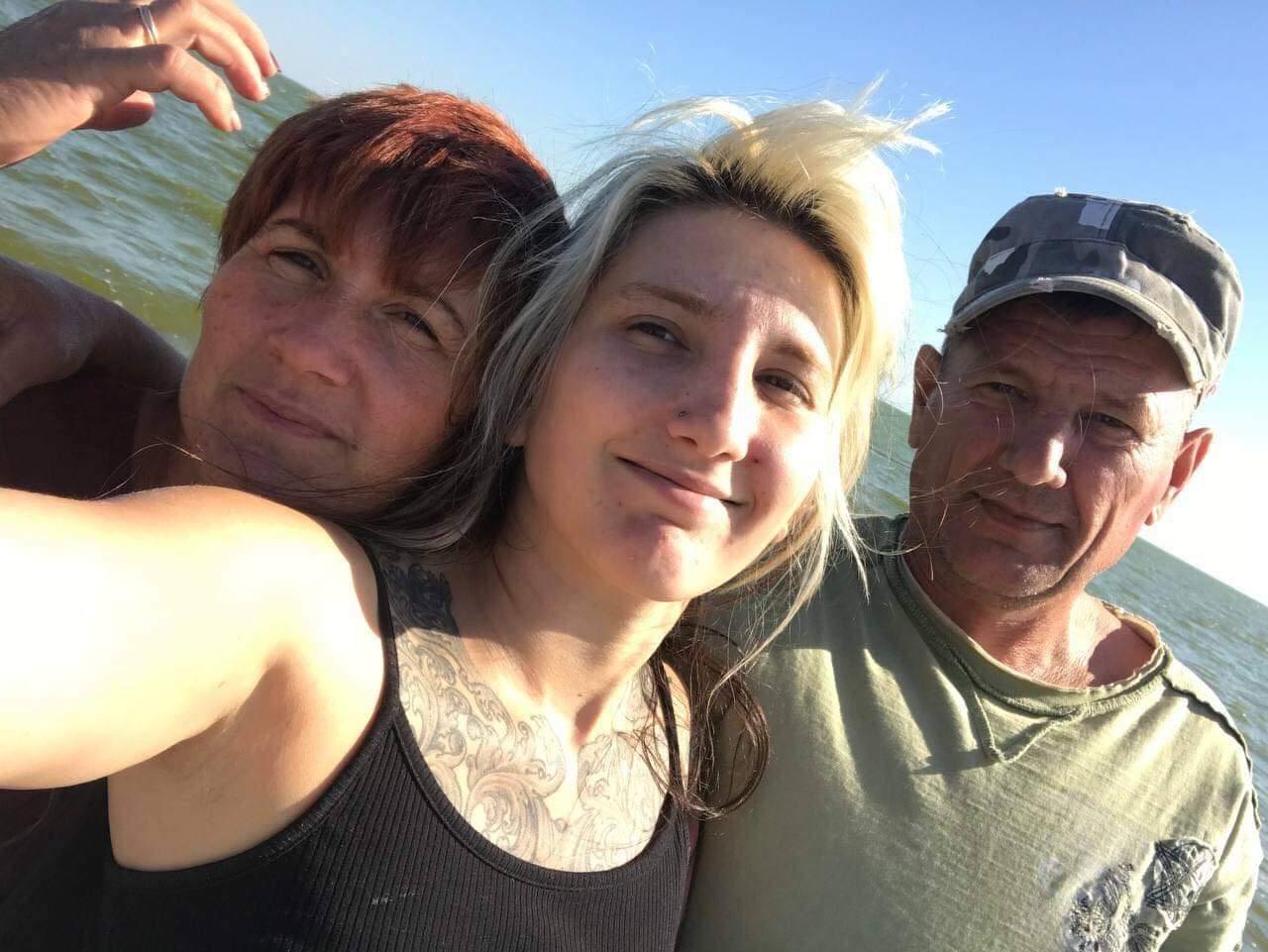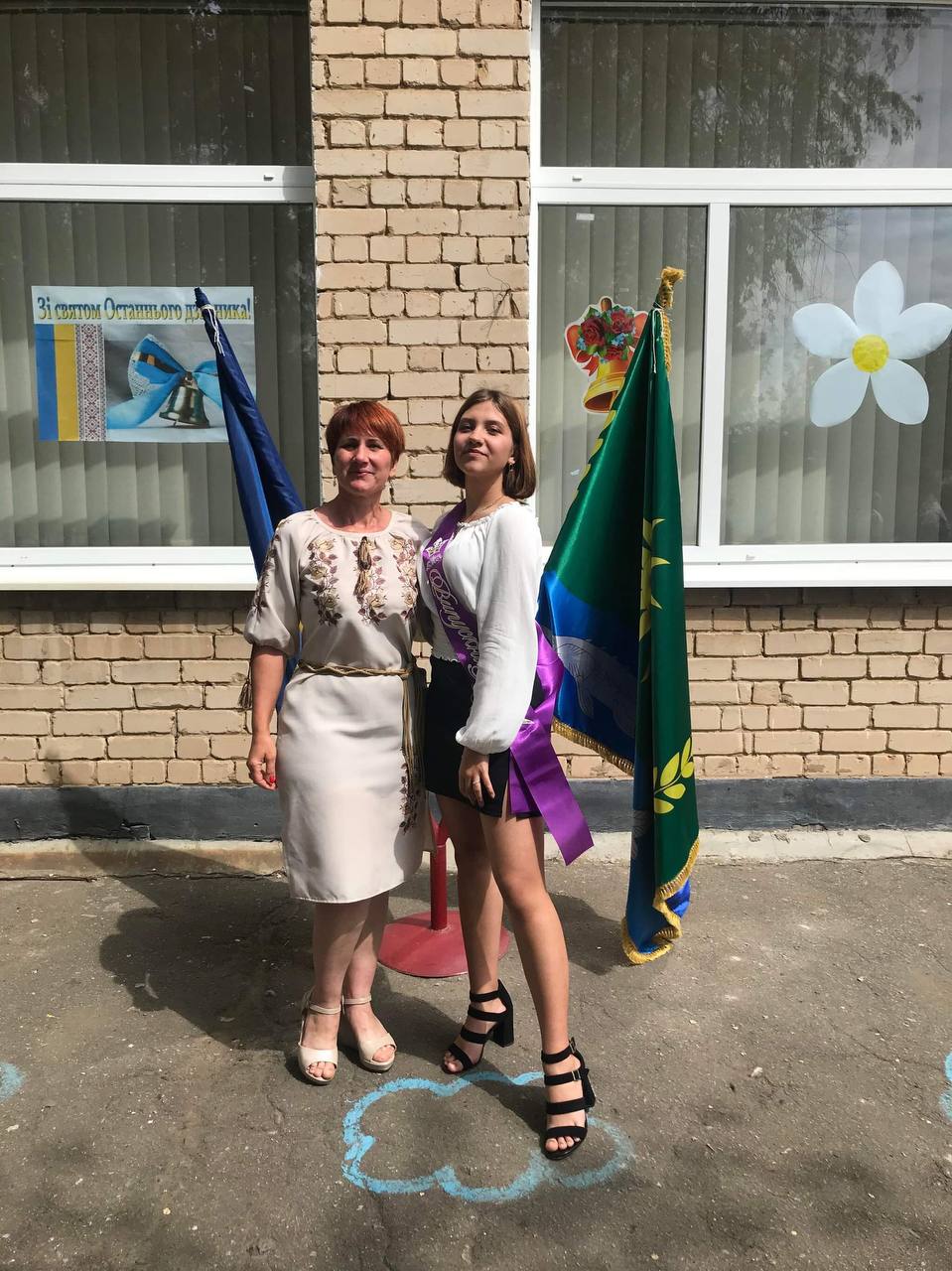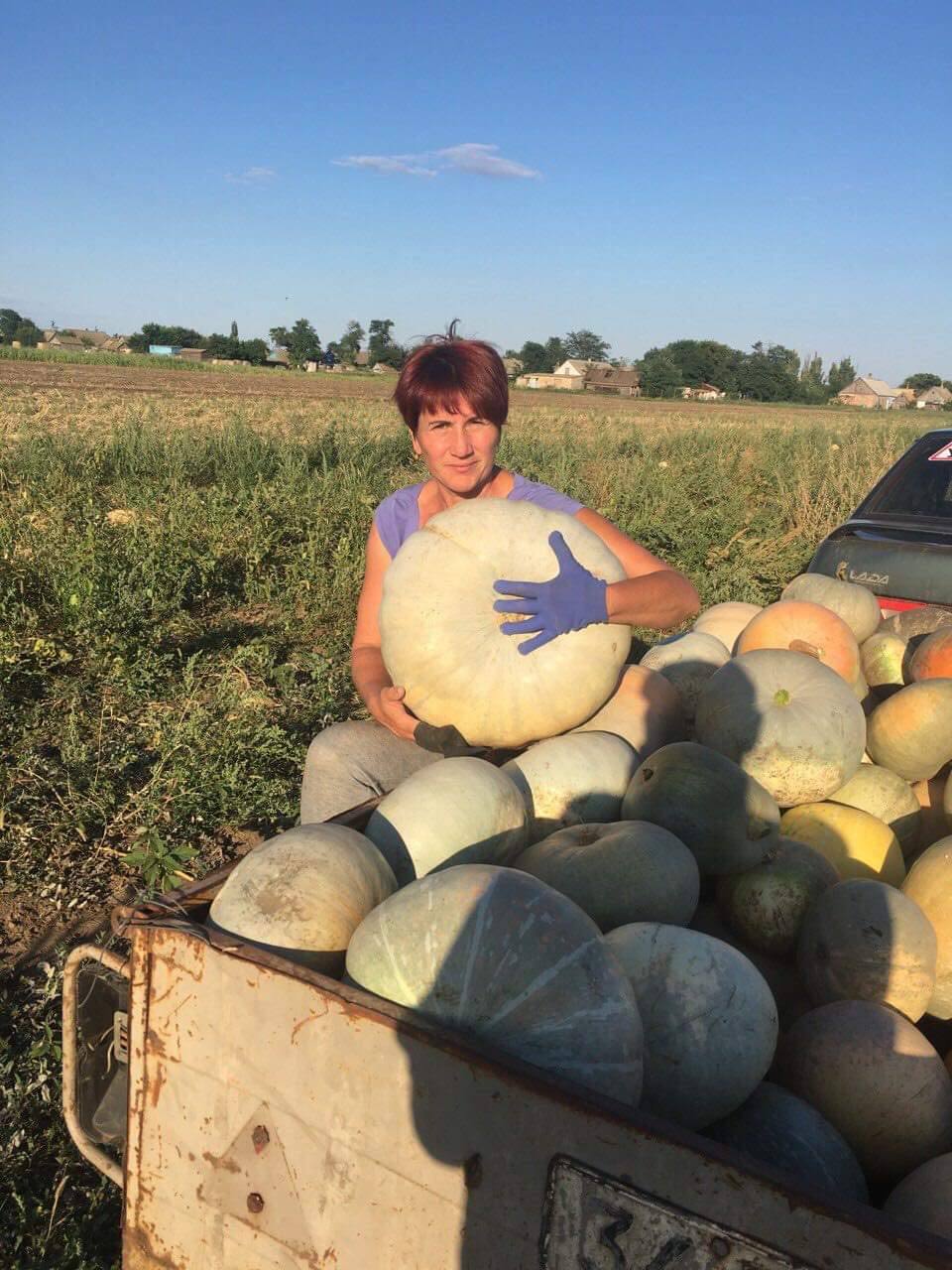I was beaten for taking the time to come up with the answer in Russian. I am a native Ukrainian speaker and it was hard for me. For every time I had to take time to think, or for every sneer that they would “take Zaporizhzhia in 2 weeks”, I was beaten on my head.
O.P.: Greetings! This is Lyudmila Nykytenko, a farmer from Oleksandrivka, Zaporizhzhia region. On September 5, Lyudmila was captured by the occupants, and she was released in the free territory of Ukraine on September 27. Lyudmila, you spent more than three weeks as a hostage of the Russian occupants and their collaborators from the so-called DNR, or as they are called, well, simply the terrorist entity, the DNR. Tell me please ... Let's just keep chronological order, on the 5th, in the morning, when they broke into your house, how many people were there? And have you seen their faces?
L.N.: There were 7 men, they were in military uniform, in balaclavas, and with weapons. They wanted to... They took my phone and my passport. They had all the evidence about my daughter... Where she studied, when she graduated, they asked where she lives now, and wanted...
O.P.: I will clarify, they were interested in your daughter...Why?
L.N.: They told me that she passes on information about... I pass on information to Khrystyna about the movement of Russian equipment, and she passes on this information to the SBU (the State Security Service of Ukraine).
O.P.: The most interesting thing is that you did not even deny this and even when you were caught, you did the same and said that you were passing on this information, correct? Or pass on whatever you see. Tell me how it was.
L.N.: I told them that I did not pass on any information on purpose. But I told what happened in our village, in our district, what I saw. It was... The machinery was coming - I told about it. Who became collaborators - I also talked about it with my daughter. We talked about it because she was interested in what was going on with us. She lives here. She was born here and this information was simply interesting to her.
O.P.: They showed you these messages, this particular messaging, dated April, but you were arrested in September. Until then, what was happening in the village? Were other people captured? Have other people disappeared? Can you tell us a little bit about it?
L.N.: Other people were not captured, but they (Russians) came and warned if they had pro-Ukrainian views. In Stepanivka, where I come from, they came to a friend's house, rummaged the house, and said they were looking for weapons. But there were no weapons there, her husband was not even a hunter. And they threatened her that they would take her away or evict her for her pro-Ukrainian views. The "DNRivtsi" came to us in April, men with weapons as well, they looted, they killed dogs, they took vodka. Everything they could find.
O.P.: Please tell us about these robberies, and about the ransom, that they wanted for both people and property. How did it happen? What was that? And what did the Russian army, which later replaced the so-called “DNRivtsi”, look like in comparison to them?
L.N.: Well, they took away our car because I said that I did not understand the Russian language. They didn't like it and decided to take the car from us. Or 30,000 UAH ransom for her. We didn't have hryvnias, we had 1,000 dollars, which we gave them for our own car. They took sons from other people. Two sons who are already adults. And the husband. And they demanded a ransom for them. Because they said they would take them to dig trenches or fight. People paid money for it too. Then they arrived the following Sunday... on the 12th there were “DNRivtsi”, on the 19th the Russian army came. There was a lot of equipment. Submachine gunners on top of the cars. With dogs. And they drove around the village, just checking the documents, and asking: "Doesn't anyone sometimes offend you?"
O.P.: So the "task of offending" went to the “DNRivtsi”? The Russian army was supposed to look "decent", do I understand correctly?
L.N.: Yes, yes, yes... They were dressed, they had such, more modern weapons, and they were like... "saviors", "liberators"...
O.P.: Nevertheless, you were arrested in September. Who was it? Was it the Russian Guard? Was it the so-called "DNRivtsi" or was it someone else?
L.N.: I didn't quite understand who it was. The guy who said he was my investigator was dressed like a Russian guard and had a flag, the Russian tricolor, on his cap. Then there were the boys, they were Chechens...you could see from them that they were Caucasian in appearance, that they were not Russians. And they behaved just as rudely as the “DNRivtsi”. For some reason, I think that it was “DNRivtsi”. There were many of them, there were 7 of them and they were all different.
O.P.: What happened after you were taken away from home?
L.N.: I was taken to Melitopol, locked in a cell. On the second day, there was an interrogation. They kept my phone and passport. The first interrogation was quite tough. With beating. But in a way so that the bruises are not visible.

O.P.: What were you beaten for during the interrogation?
L.N.: Because I was thinking about how to answer in Russian because they needed an answer in Russian. I am a native Ukrainian speaker and it was hard for me. I had to take time to come up with the answer in Russian. Well, and for every time I had to take time to think, or for every sneer that they would “take Zaporizhzhia in 2 weeks” I was beaten on my head. They also threatened me that they would break my nose, knock out my teeth, and kick me on the floor with their feet.
O.P.: Where were you kept these three weeks?
L.N.: Well, how... later we were like partisans a bit with the girl we were staying together with. We looked around a little, which houses were there, which cafe was there. We realized that we were somewhere near the green polyclinic in Melitopol. I don't know the name of the street, because I don’t know Melitopol well. Well, they said that there was some kind of police station or... There was something like that, similar to a pre-trial detention center. There were eleven cameras, and six grids on the window. The grids were various, thin and so thick that the sun passed through them very poorly. Well, like a cell: two wooden beds, a toilet, a table, and chairs. Everything was cemented to the basement.
O.P.: Did you have the opportunity to communicate with other prisoners?
L.N.: In general, music was played there from 6 in the morning until 11 at night. The music played was “suicidal”. Very, very loud, for the whole corridor. Pro-Russian, the anthem of Russia, about the DNR. Well, their music is... Russian. And there was no such opportunity.. And one evening, the light went out, and we had 15 minutes - while no one was there, we talked with other prisoners. They learned a little about who is there and what the boys are jailed for. Mostly there were guys there. There were two girls, me and Tatyana.
O.P.: Tatyana... Can you tell us a little about her? What did they take this girl for? How old is she? where is she from?
L.N.: Tatiana... 27 years old. They took her in Melitopol, with her boyfriend. She was a partisan. He was handing over geolocations, and she was posting leaflets. She was taken before Independence Day, kept for 9 days in Chernyshevsky Street in some iron cage, and her boyfriend was kept in the garage. Then she was transferred here, where I was. But she got there a little earlier. And the guy was staying there, then later got to where we were.
O.P.: In what condition did he get into?
L.N.: Well, as the guys who saw him told.. They said that his nose was broken, his lip was broken and his ribs were broken.
O.P.: So he was tortured?
L.N.: Well, yes.
O.P.: What happened then? On the second day, the 6th, you were interrogated and beaten for speaking Ukrainian. For the fact that you tried to answer in Russian, but you were taking time to come up with an answer, you were beaten as well. What happened after that? Between the 6th and the 27th? Did you just stay there? Right?
L.N.: There was an interrogation on the 7th, the second one. It was after lunch. I was very afraid to go on it, I thought it would be worse. Probably after they checked my phone and found nothing there, the second interrogation was calm. But because I had a hat over my eyes, I did not see them. I recognized the voice that it was the same “investigator” who was at my home. He asked the same thing, nothing new.
O.P.: And what exactly? What exactly did he ask?
L.N.: The same... about Khrystyna, about my pro-Ukrainian views. About... who went to work for them, and if I condemn them for the fact that they went to work in Russia. Before that, I wrote the same thing I told them on three sheets of A4. He was reading them and asking me the same things that were written on those sheets. And then there was another interrogation, on September 15, on a video camera. Already without a hat. Even the man sitting across from me was not afraid, he did not hide his face, he was in a clean green uniform. And he had an appearance...well, not Russian. It is clear that he was also a Chechen. As the guys said later, the lights went out on the 17th, and I had an interrogation on the 15th... As the guys said, this man was conducting a polygraph on them. They took the guys for a polygraph and he conducted it. He was filming, asking the same things about Khrystyna, the same about my views, why I don't like Russia, why I don't want to live in Russia. And if I wanted to leave. And I confirmed that I wanted to leave. Especially since my husband and I were going to leave on September 9.
O.P.: Tell us more about the threats to you. They threatened you, it seems, with Khrystyna, your daughter, as well. What kind of threats were these?
L.N.: They said that I have many photos of her, they have already sent them to the "Chechens", and they will bring her from the Netherlands with a bag on her head. By sea.
O.P.: Regarding that, they were interested if you condemn the collaborators who went to work for Russia. Why do you think they were interested in this question? Are there many collaborators in the village where you live?
L.N.: They were interested in how many... They asked whether any of my friends and acquaintances went. And I replied that none of my friends and acquaintances went to cooperate. But I condemned everyone else, and I even didn’t hide it. I directly showed my position without hiding it. They didn't like it, because they said that I behaved wrongly, that people simply behave correctly, that they think correctly, and that they went to cooperate because it was right. We don't have many collaborators, I also said that. Our cultural center and the kindergarten refused to cooperate. And they didn't like it, of course.
O.P.: You said that 5 days before you were released, you were actually deported from the occupied territory to the free territory, through Vasylivka, am I correct?
L.N.: Yes.
O.P.: Something started happening around you. What exactly started happening around you?
L.N.: They closed the window, first of all. Because the window was open, and I was cold to sleep at night and during the day. I had a vest, I covered myself with a vest, put a pillow on my legs. For the first 2 days, they didn't even give me a mattress. I just slept on a wood...on a wooden bed. They gave it later. And then they closed the window and gave me a blanket. And we were transferred from this cell where the toilet didn’t work and everything leaked into our cell from the toilet. We were transferred to more normal conditions, where at least the toilet didn’t leak. Only later I got to know that my husband left for Zaporizhzhia on the 22nd and started ringing all the bells - he reported my disappearance to the police, went to the SBU, and reported my disappearance there as well. And somehow, I don't know why, but it seemed to me that something started to happen for the better. But I still didn't understand what it was and what it would lead to.
O.P.: Do you now have an understanding of what made them get rid of you specifically? Well, that is, to release you = to get rid of you?
L.N.: I think because there was a lot of publicity. Because my daughter did not sit idly by. She wrote wherever possible. Throughout. The publicity was crazy. I think maybe it was it.

O.P: So now your whole family is in the free territory?
L.N.: My husband, yes, but my parents and my mother-in-law aren’t. They stayed there. Elderly people, they… just don't leave.
O.P: What do you want to do next?
L.N.: Oh, this is such a difficult question. I want to go home. But already in Ukraine. Well, for now in Zaporizhzhia. Now I need documents - I don't have a passport. They didn't give me my passport back because I didn't want to say "Glory to Russia!". I was released without a phone, without a passport. Just like that. Now I'm doing my documents. We live at my friend's house, at Christina's friend's house. We were sheltered, we live for free. We will look for a job. We will try somehow...
O.P: You were under occupation for more than six months, you were jailed for more than 3 weeks, and you were captured, beaten, and tortured. What do you want to say to the people in the free territory about what is happening in the occupied territory? About people who are in the occupied territory. Is there anything, in particular, you want to share? It was 8 years especially in Crimea when there were such thoughts as to why people didn’t take up weapons and resist the occupants with them. Do you have anything to say to these people who accuse people of the occupation?
L.N.: Very hard. It is very hard morally, and physically hard. Looking at those people who switched, who you knew all your life, who taught your child, they switched to the side of the aggressor. It is very difficult. And you know, sometimes you want to drop everything and join the Armed Forces of Ukraine. Simply because something has to be done, somehow to fight with it, with this evil. I don't know... It's very hard. Not so physically... Well, my husband has land, he worked on his own land. I had a farm, I worked on my farm. We didn't work for anyone, we worked for ourselves. There was no such pressure on us. And it is this moral pressure... This is Russian money, Russian prices... it is very difficult.
O.P.: Thank you! We will post what you said. I think in the near future, the human rights defenders, who we have given your story from the beginning, will find you a lawyer. I understand that you want to sue the Russian Federation, right?
L.N.: Yes, I want to appeal to the European Court of Human Rights.
O.P: Thank you!
L.N.: And thank you very much, too, for your help and publicity. Thank you very much!
O.P.: Thank you!
